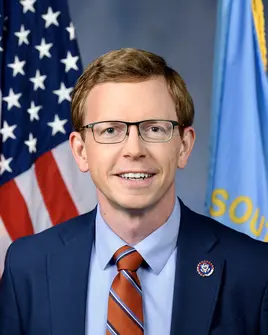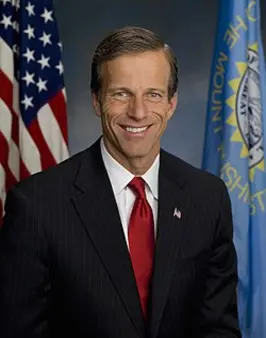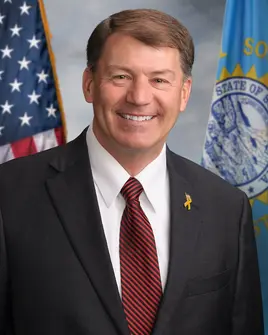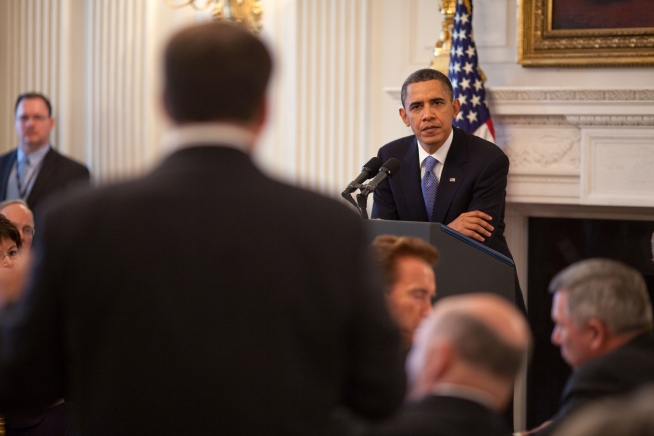In a significant political stalemate, congressional leaders failed to reach an agreement on critical funding legislation by the October 1 deadline, triggering a partial government shutdown. As federal services brace for impact, hundreds of thousands of workers face uncertainty with potential furloughs and layoffs looming.
The shutdown’s ripple effects are being felt across the nation, including in South Dakota, where approximately 11,500 federal workers are employed as of August 2025, according to the South Dakota Department of Labor. While essential services such as the U.S. Postal Service, Social Security, and air traffic control remain operational, anxiety grows among other federal employees.
South Dakota, known for its sprawling landscapes and agricultural prominence, finds itself at the epicenter of a political tussle that could have long-term implications. The shutdown came in the wake of the House passing a Republican-backed funding bill on September 19. However, Senate Democrats are holding out for permanent extensions of Affordable Care Act premium subsidies, demanding a commitment to maintain COVID-era tax credits that ensure the affordability of healthcare for millions of Americans.
Without these extensions, data from the Congressional Budget Office indicates that around 22 million people enrolled in Obamacare risk losing premium subsidies, with a significant portion—4 million—potentially becoming uninsured. The financial stakes are high, as permanently extending the tax credit is estimated to cost $358 billion over the next ten years.
South Dakota’s Republican delegation, including U.S. Rep. Dusty Johnson, U.S. Sen. John Thune, and U.S. Sen. Mike Rounds cast blame on Senate Democrats for the shutdown, emphasizing their perceived intransigence in negotiations. Meanwhile, the South Dakota Democratic Party swiftly pointed fingers at Republicans, particularly criticizing the failure to secure necessary compromises for the sustainability of healthcare support systems.
Dusty Johnson labeled the shutdown as “stupid” and expressed his dissatisfaction by requesting that his legislative pay be withheld during the shutdown. Johnson has also introduced a bill aimed at preventing future shutdowns. “They hurt our country and provide no policy wins for the party that forces the shutdown,” said Johnson in an October 1 video post.

Dusty Johnson
U.S. Sen. Majority Leader John Thune echoed similar sentiments. He attributed the shutdown to Senate Minority Leader Chuck Schumer’s opposition to the bipartisan funding bill, a narrative echoed by Republican colleagues. “It’s about opening the government back up for the American people,” Thune asserted post-shutdown.

John Thune
Sen. Mike Rounds is navigating a more diplomatic route. He indicated that Republicans are willing to address Affordable Care Act subsidies once the government is reopened, suggesting a potential compromise involving a one-year extension of subsidies followed by a gradual sunset back to pre-pandemic levels.

Mike Rounds
Republican South Dakota Gov. Larry Rhoden assured that the state would face minimal immediate impacts from the shutdown. National parks, a significant tourist attraction including Mount Rushmore, will remain open, preserving a steady flow of visitors to the state. “South Dakotans want common sense government, not taxpayer-funded healthcare for illegal immigrants,” said Rhoden, reinforcing the state’s stance in this national dialogue.
However, the shutdown’s implications on agriculture, South Dakota’s central economic pillar, could be profound. The South Dakota Democratic Party expressed concerns over potential disruptions to Farm Service Agency operations during the harvest season, which could leave farmers vulnerable at a critical time.
South Dakota Attorney General Marty Jackley emphasized the shutdown’s broader implications, particularly the risks to public safety services. “We need to make sure that those who keep us safe are paid and that there are still funds available for grants used by state and local law enforcement and first responders,” he wrote on Facebook, joining a coalition urging a resolution.
As political leaders on both sides grapple with responsibility and repercussions, South Dakotans hope for a swift resolution that prioritizes both state interests and the broader national welfare.
